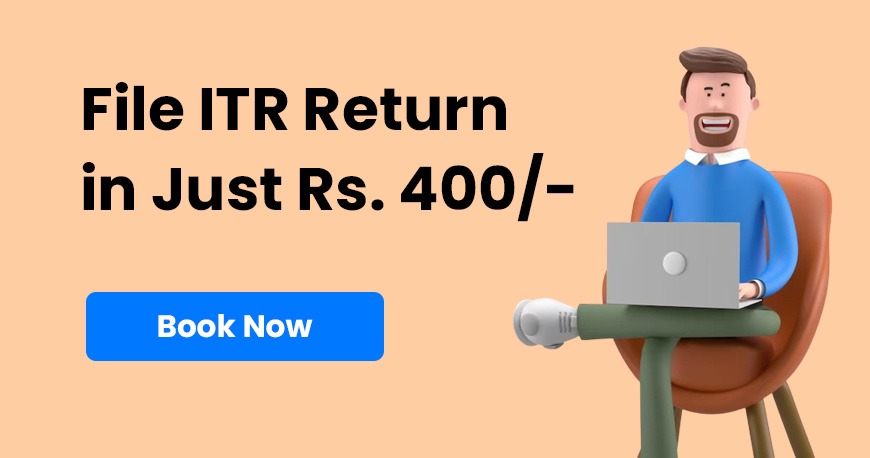Understanding Tax Collected at Source (TCS) in the GST Act of 2017
The GST Act of 2017 marked a profound transformation in India's tax framework, introducing crucial provisions like Tax Collected at Source (TCS).
Understanding Tax Collected at Source (TCS) in the GST Act of 2017
The GST Act of 2017 marked a profound transformation in India's tax framework, introducing crucial provisions like Tax Collected at Source (TCS). TCS expands the tax base and enforces tax compliance by making sellers responsible for collecting and remitting taxes to the government at the source. This article offers an in-depth exploration of TCS as per the GST Act of 2017.
Understanding TCS (Tax Collected at Source)
TCS, or Tax Collected at Source, is a process that requires sellers to collect tax from buyers at the time of specific goods and services transactions and then remit it to the government. This mechanism is designed to track transactions and ensure proper tax collection by the government.
When is TCS Applicable?
TCS, as per the GST Act of 2017, applies to two main categories of transactions:
1. E-commerce Operators: These operators must collect TCS, not exceeding 1%, from sellers when they make sales via the e-commerce platform. This ensures that sellers using e-commerce platforms are part of the tax system.
2. Sale of Minerals: Individuals or companies engaged in the sale of specific minerals like coal, lignite, and iron ore also have TCS obligations, typically set at 1%.
TCS Procedure
The TCS process involves the following steps:
1. Registration: E-commerce operators and mineral sellers must register under GST once their turnover surpasses the specified limit.
2. Tax Collection: E-commerce operators collect TCS at the defined rate and deposit it with the government. They then issue a TCS certificate to the seller for the tax collected.
3. Filing Returns: E-commerce operators file monthly returns with TCS details, while sellers claim TCS credit in their monthly returns.
4. TCS Certificate: Sellers receive a TCS certificate from e-commerce operators as proof of the TCS payment. This certificate is essential when filing GST returns.
Compliance and Penalties
Non-compliance with TCS provisions can lead to penalties and legal consequences. Meeting TCS obligations is crucial for both e-commerce operators and mineral sellers to avoid such penalties.
Impact and Benefits of TCS
TCS has several impacts and benefits:
1. Improved Tax Compliance: TCS encourages tax compliance among sellers, especially on e-commerce platforms, reducing opportunities for tax evasion.
2. Increased Revenue: The government enjoys a consistent source of revenue through TCS, fulfilling its fiscal duties.
3. Data Transparency: TCS enhances data transparency, maintaining transaction records that help authorities accurately track tax payments.
4. Reduced Tax Evasion: TCS serves as a deterrent against tax evasion by making e-commerce operators and sellers responsible for tax collection and remittance.
Conclusion
Tax Collected at Source (TCS) under the GST Act of 2017 is vital for ensuring tax compliance in India. It places the responsibility on e-commerce operators and mineral sellers to collect and deposit taxes at the source. TCS enhances revenue collection, transparency in transactions, and overall tax system efficiency. Sellers and e-commerce operators should be aware of their TCS obligations to avoid penalties and contribute to a stronger, more effective tax system in the country.
Also Read: Real Estate Sector Taxation within the GST Act of 2017
FILING YOUR INCOME TAX RETURN F.Y 2022-23 (A.Y. 2023-2024) WITH MYITRONLINE
Income tax filing deadline is right around the corner. If you haven’t filed yet, do it now for FREE on Myitronline! Avoid last minute rush and file your tax return today on MYITRONLINE in Just 5 mins.(www.myitronline.com)
If you are looking for eCA assistance to file your income tax return/ GST, you can opt for MYITRONLINE eCA assisted plan starting
Upload Salary Individual Form-16
If you have any questions with filing your tax return, please reply to this mail. info@myitronline.com OR call 9971055886.
Note-All the aforementioned information in the article is taken from authentic resources and has been published after moderation. Any change in the information other than fact must be believed as a human error. For queries mail us at marketing@myitronline.com
Krishna Gopal Varshney
An editor at MyitronlinenewsKrishna Gopal Varshney, Founder & CEO of Myitronline Global Services Private Limited at Delhi. A dedicated and tireless Expert Service Provider for the clients seeking tax filing assistance and all other essential requirements associated with Business/Professional establishment. Connect to us and let us give the Best Support to make you a Success. Visit our website for latest Business News and IT Updates.









